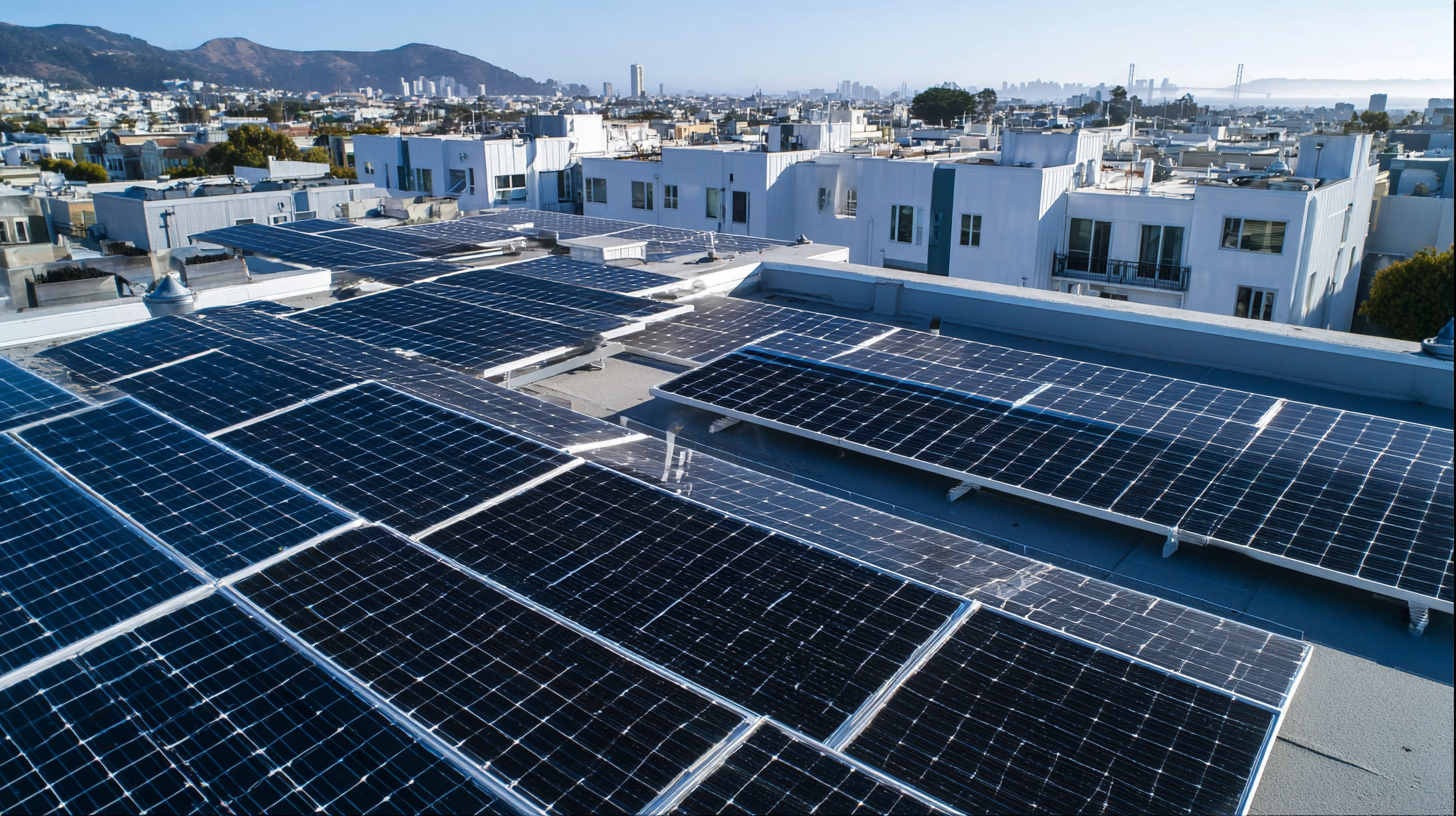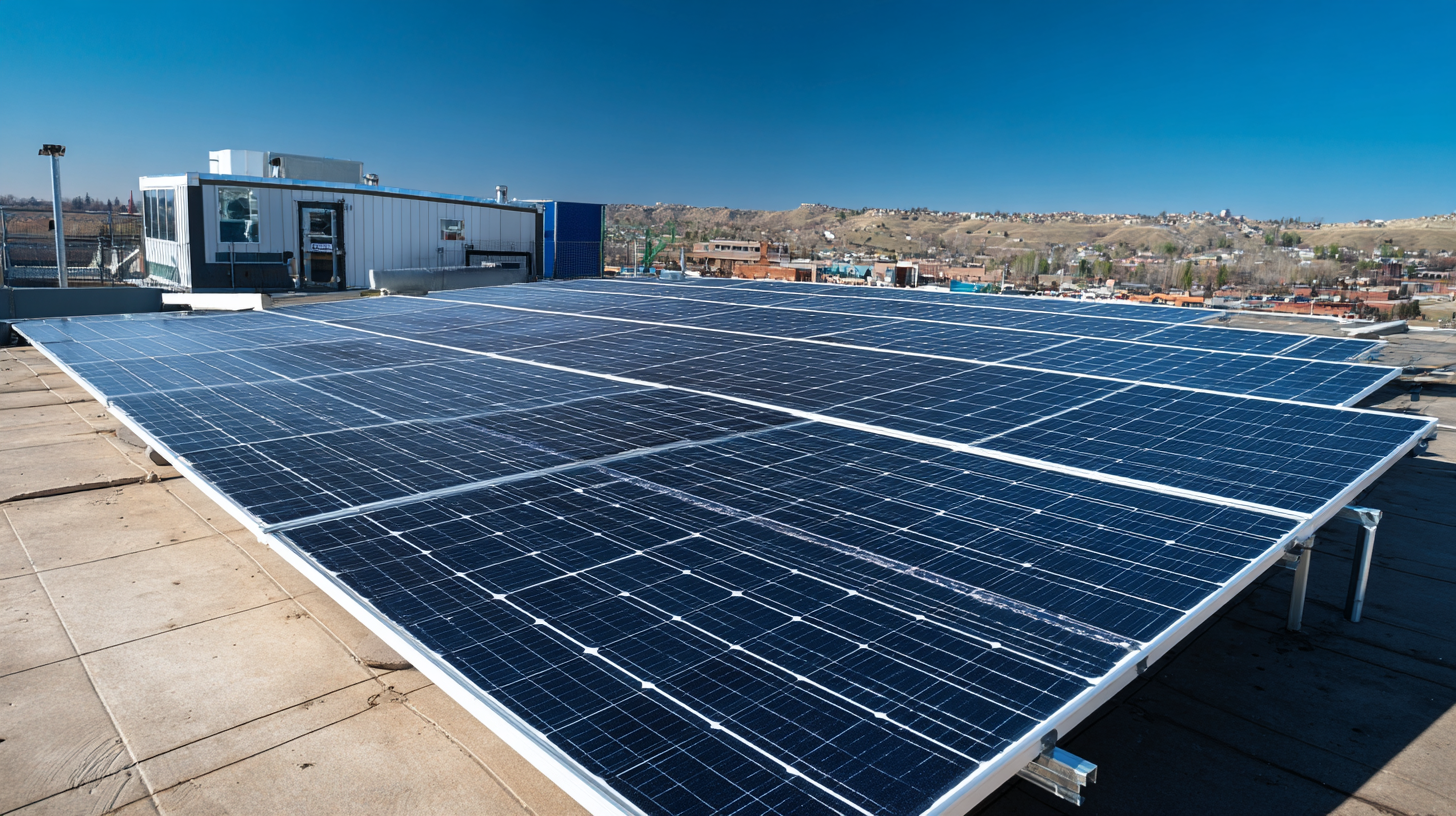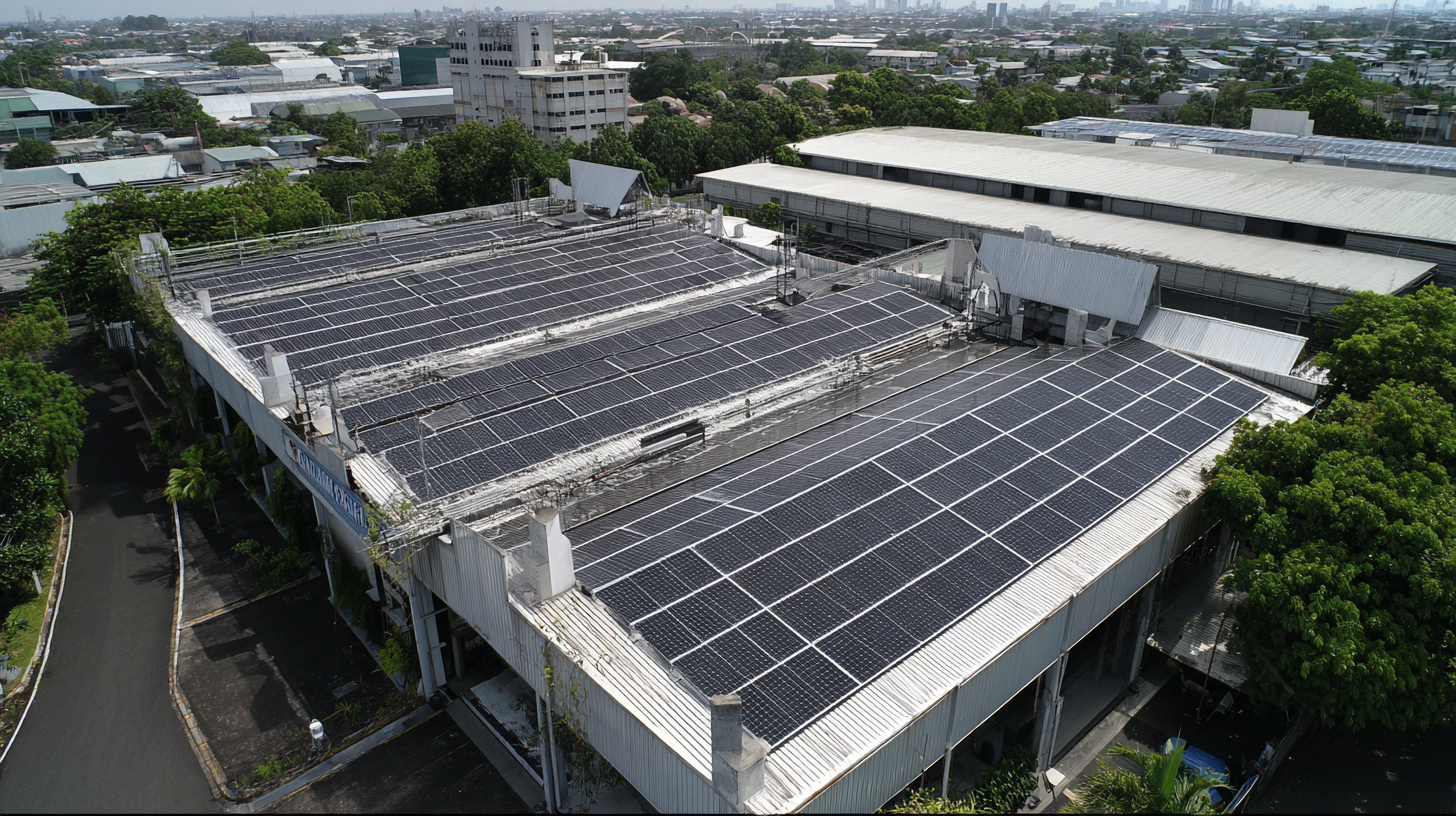 In recent years, the adoption of rooftop solar panels has surged, with the Solar Energy Industries Association reporting a remarkable 167% increase in commercial solar installations over the past five years. This trend reflects the growing recognition among businesses of the significant benefits that solar energy can provide, such as reduced electricity costs and enhanced sustainability. With increasing pressure from consumers and regulatory bodies to lower carbon footprints, selecting the right rooftop solar panels has become more crucial than ever. Not only do these systems offer a means to harness renewable energy, but they also can serve as a competitive advantage in a market that increasingly favors environmentally responsible practices. In this ultimate guide, we will explore the essential factors to consider when choosing rooftop solar panels tailored to your business needs, ensuring you make an informed decision that balances efficiency, cost, and long-term sustainability.
In recent years, the adoption of rooftop solar panels has surged, with the Solar Energy Industries Association reporting a remarkable 167% increase in commercial solar installations over the past five years. This trend reflects the growing recognition among businesses of the significant benefits that solar energy can provide, such as reduced electricity costs and enhanced sustainability. With increasing pressure from consumers and regulatory bodies to lower carbon footprints, selecting the right rooftop solar panels has become more crucial than ever. Not only do these systems offer a means to harness renewable energy, but they also can serve as a competitive advantage in a market that increasingly favors environmentally responsible practices. In this ultimate guide, we will explore the essential factors to consider when choosing rooftop solar panels tailored to your business needs, ensuring you make an informed decision that balances efficiency, cost, and long-term sustainability.
When considering rooftop solar panels for your business, several key factors must be taken into account to ensure optimal decision-making. Firstly, the energy needs of your business will play a crucial role. According to the U.S. Department of Energy, commercial buildings account for about 18% of total energy consumption in the U.S. By analyzing your building’s energy usage, you can determine the appropriate size and capacity of the solar panel system needed to meet your specific energy demands.
Another vital consideration is the roof's condition and orientation. A study by the National Renewable Energy Laboratory (NREL) indicates that the angle and direction of a rooftop can significantly impact solar energy production. Ideally, roofs that face south with minimal shading throughout the day are best suited for solar installations. Additionally, potential structural assessments should be conducted to ensure the roof can support the added weight of solar panels.

Lastly, the choice of solar panel technology—monocrystalline, polycrystalline, or thin-film—can affect efficiency and lifetime costs. Reports from the Solar Energy Industries Association show that monocrystalline panels, while often pricier, tend to have a higher efficiency rate (around 20% or more) compared to their polycrystalline counterparts, which typically offer around 15-17% efficiency. This efficiency difference can directly influence your business's energy savings over time.
When selecting the best rooftop solar panels for your business, understanding the efficiency ratings of these panels is vital. Efficiency ratings indicate how well a solar panel converts sunlight into usable electricity, which directly impacts its performance and financial viability. According to industry reports, global demand for solar products, particularly for commercial applications, is expected to grow significantly. The market for solar modules is projected to reach $4.64 billion by 2032, growing from $3.26 billion in 2025, with a compound annual growth rate (CAGR) of 5.17% over this period.
Business owners must consider these efficiency ratings not only for current energy needs but also for long-term sustainability goals. Higher efficiency panels may have a higher initial cost but can lead to reduced energy bills and a quicker return on investment. The shift towards renewable energy sources is clearly indicated by these figures, highlighting the transition businesses are making towards sustainable practices. By investing in the right solar technology now, companies can position themselves favorably in an evolving marketplace that increasingly values efficiency and sustainability.
| Panel Type | Efficiency Rating (%) | Power Output (W) | Warranty Period (Years) | Temperature Coefficient (%/°C) |
|---|---|---|---|---|
| Monocrystalline | 20.5 | 320 | 25 | -0.35 |
| Polycrystalline | 15.5 | 280 | 25 | -0.40 |
| Thin-Film | 11.5 | 150 | 10 | -0.20 |
| Bifacial | 20.0 | 360 | 30 | -0.30 |
| High-Performance | 22.0 | 400 | 25 | -0.32 |
When considering the installation of
solar panels
for your business, evaluating cost-effectiveness is crucial. Solar panels can require a significant upfront investment, but they often pay off over time through energy savings and potential tax incentives. When reviewing costs, factor in not only the purchase and installation expenses, but also long-term maintenance and energy output projections.
Tip: Always obtain multiple quotes from different contractors. Comparing prices and services can help you find the right balance between quality and affordability. Additionally, consider the type of panels that align best with your energy needs—monocrystalline panels may be more efficient but typically come at a higher cost than polycrystalline options.
In analyzing cost-effectiveness, assess your business’s energy usage patterns. If your company operates during peak sunlight hours, you could maximize savings by generating more energy on-site. Investigating financing options, such as loans or leases, can also make solar energy more accessible and maintain cash flow while benefiting from renewable energy solutions.
Tip: Look into local and federal incentives that can lower your initial expenses. Many regions offer rebates or tax credits for commercial energy efficiency projects, significantly enhancing the overall cost-effectiveness of your solar investment.
Rooftop solar panels are not just a cost-effective solution for businesses but also contribute significantly to environmental sustainability. By harnessing the power of the sun, businesses can reduce their carbon footprint, thereby playing a vital role in combating climate change. The shift toward renewable energy sources is essential for protecting natural resources and promoting a healthier planet. When businesses install solar panels, they contribute to cleaner air and a reduction in greenhouse gas emissions.
**Tips for Choosing the Right Solar Panels**: First, consider the energy needs of your business. Assess your electricity consumption patterns to determine the size and type of solar panel system that best suits your operational requirements. Additionally, research the environmental certifications of different solar panels, ensuring that they meet sustainability standards. Choosing panels made from recyclable materials can further enhance your eco-friendly footprint.
Another crucial aspect is to evaluate the installation and maintenance support offered by different solar panel providers. A reputable provider should not only help with the initial setup but also offer ongoing maintenance and support to ensure optimal efficiency. Prioritizing these factors will enhance your business's commitment to sustainability while maximizing its long-term return on investment.
When exploring rooftop solar panels for business needs, comparing manufacturers is crucial. A recent report by the International Energy Agency (IEA) indicates that the global solar PV market has seen a compound annual growth rate of 27% from 2010 to 2020, highlighting a surge in demand for high-quality solar solutions. Key players like SunPower, LG, and JinkoSolar offer unique advantages in efficiency and durability, but selecting the best option depends on your specific requirements.
For instance, SunPower's Maxeon panels boast a record-breaking 22.8% efficiency, making them suitable for businesses with limited rooftop space. Meanwhile, LG's NeON R series provides top-tier performance and an impressive 25-year warranty, ensuring long-term reliability. According to BloombergNEF, JinkoSolar has ranked as the largest module supplier globally for two consecutive years, proving their commitment to quality and performance. By evaluating these manufacturers through metrics such as efficiency, warranty, and cost-effectiveness, businesses can make informed decisions that align with their energy needs and sustainability goals.

As electricity costs continue rising, many small households in Maharashtra seek sustainabl...Read More
Uttar Pradesh is making significant progress in adopting renewable energy, particularly so...Read More
With the Indian government actively promoting renewable energy through subsidies and polic...Read More
Tired of watching your electricity bills climb month after month and strain your pockets? ...Read More
Switching to solar energy in Gujarat has never been more profitable! With plenty of sunlig...Read More
If you live in Madhya Pradesh and want to save money on power while living a greener lifes...Read More
If you’re a resident of Bangalore looking to save on your skyrocketing electricity b...Read More
If you live in Karnataka and have been looking for an environmentally friendly, cost-effec...Read More
Delhi is a city that thrives on its vibrant energy, and what better way to complement that...Read More
As electricity costs continue rising, many small households in Maharashtra seek ...Read More
Uttar Pradesh is making significant progress in adopting renewable energy, parti...Read More
With the Indian government actively promoting renewable energy through subsidies...Read More